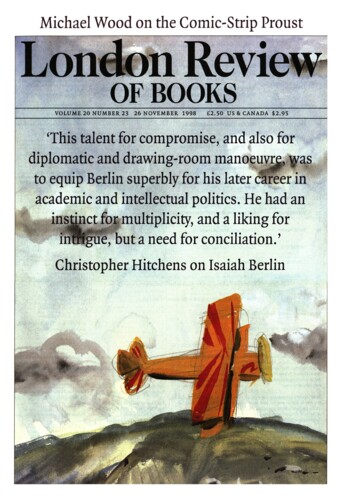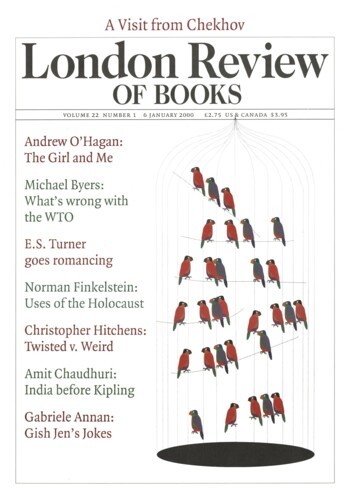Longing for Mao: Edward Heath
Hugo Young, 26 November 1998
In Modern British politics, Edward Heath is the Old Man of the Sea. Not quite as ancient as Methuselah, he has been around for five active decades which sometimes seem like a century. The ocean was what famously passed for his recreational hinterland, and the jacket of his autobiography shows an open, smiling face which could be that of a tweedy amateur sea-dog, weather-beaten and gimlet-eyed, and is, at a guess, at least ten years behind the corpulent, irritable landlubber who now rolls with some difficulty round the House of Commons. But Heath also has the Old Man’s figurative presence. He’s the burden from which the political system has not found release. He has never been persuaded to retire from the scene, but continues to perform the role he invented for himself two decades ago, as the face of the old, generous, socially concerned Conservatism that Margaret Thatcher destroyed and neither John Major nor William Hague has done anything to re-create. While most other believers in this brand of Toryism, not only from Heath’s generation but the next two, have slipped away, to the House of Lords and points east, this old, old man, 83 next birthday, is still there, fuming righteously.


